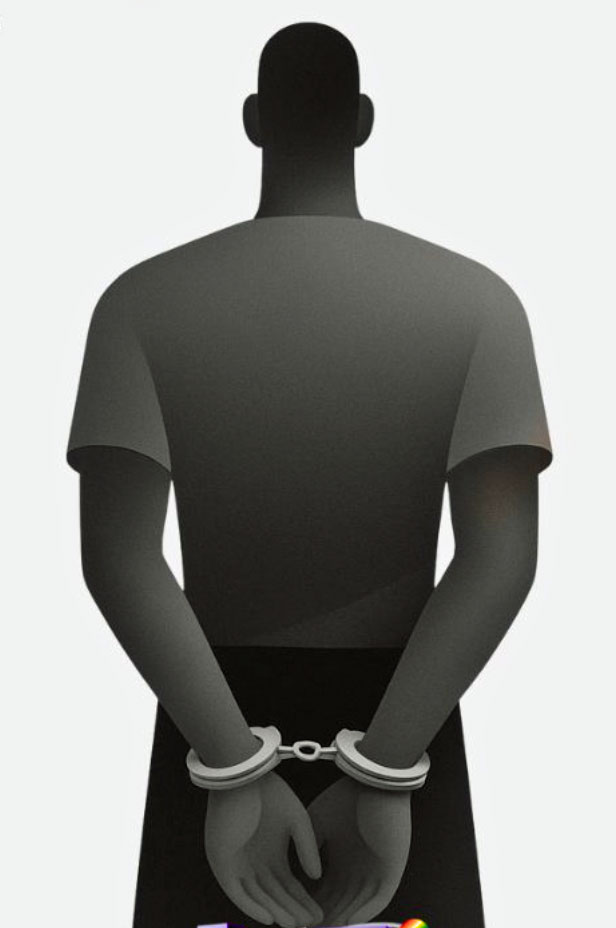Ugandan police arrest serial blackmailer of LGBTQI+ people
Joto La Jiwe is a Ugandan correspondent for the African…
Blackmailer targeted queer Ugandans with impunity, local reports allege

An alleged serial blackmailer who has been tormenting LGBTQI+ Ugandans online has been arrested by the Ugandan authorities, according to the local LGBTQI media outlet Kuchu Times.
Akampurira Najib aka Morris allegedly led a racket of crooks who opened fake accounts on dating sites frequented by LGBTQI+ persons with a sole purpose of blackmailing unsuspecting members of the LGBTQI+ community.
According to Kuchu Times, what made Morris particularly dangerous was his network of accomplices, including police officers, boda-boda riders, and community members willing to form mobs.
“This system of complicity meant that even when victims managed to involve law enforcement, Morris would often walk free within a day while his victims faced arrest and prosecution,” Kuchu Times reports.
Kabalagala Police station in Kampala City was his preferred ‘detention center.’ Most of his alleged victims were either detained there or threatened to be taken there.
Details of where Morris is being held and the next course of action are not clear, but given his cozy relations with the police, it is not clear whether he will actually be brought to justice.
The Uganda Minority Shelters Consortium and its partners have tracked over 150 cases of extortion, torture, blackmail, arrests, and harassment perpetrated by Morris and his network of accomplices over the past three years.
Kuchu Times reports that Morris’s arrest comes after a courageous victim reported him to authorities for extortion and blackmail, despite the significant personal risk of outing himself as a queer person.
“Morris primarily targeted middle to upper-class queer men and transgender women—individuals with ‘more to lose reputationally’ and more expensive smartphones to steal. His hunting grounds included popular dating apps like Grindr (his preferred platform), Planet Romeo, and Tinder (increasingly used after the Anti-Homosexuality Act as these platforms were deemed ‘safer’),” Kuchu Times reports.
Morris is said to have preferred meeting in isolated locations—particularly around black gates, schools, or remote areas rather than public venues like restaurants or bars.
His alleged criminal career reportedly shows a disturbing evolution from petty theft to systematic exploitation of Uganda’s anti-LGBTQ+ laws. Reports indicate his methods were originally relatively simple: he would appear at dates with gifts and expensive perfumes, gain victims’ trust, then disappear with their phones after requesting to “make a call.”
The passage of the Anti-Homosexuality Act in 2023 marked a turning point. As victims would be more hesitant to report him for fear of prosecution and persecution, Morris allegedly began by targeting older, vulnerable gay men, conducting extensive research on their families, children, and work situations to maximize the psychological pressure.
By March 2023, Morris allegedly escalated to home invasions, with one victim reporting that three individuals claiming to represent government officials demanded 7 million Ugandan shillings (approximately 2000 USD) using the Anti-Homosexuality Bill as pretext. The victim was illegally detained and coerced into paying 5 million shillings (approximately 1425 USD).
The Uganda Minority Shelters Consortium documented that approximately 40 percent of Morris’s alleged victims were repeatedly targeted, demonstrating both his impunity and the vulnerability of the community he preyed upon.
In May, we published a story titled “Queer Ugandans under attack on dating apps” in which we highlighted two stories of blackmail and arrests.
In one of the cases, a gay man was contacted by a man with whom they started a flirtation, and later agreed to meet. When the two met, the other person came with police officers from Kabalagala Police station, who arrested him. While he was in custody, the police officers went through his phone and found communications with a person whom they suspected to be the victim’s intimate partner, and tricked him into meeting them. They arrested him too and charged both with homosexuality.
In another case, a gay man met another man on a dating app and they later agreed to meet in person, and the victim directed him to his home. However, before the physical meeting, the other person started calling him and demanding money in exchange for not going to his home and outing him to his village leadership.





This article is deeply troubling, shedding light on the horrific exploitation of LGBTQ+ individuals in Uganda. Its alarming that someone like Morris could operate with such impunity, preying on vulnerable people. The polices unclear role is particularly disheartening.piupiu star ship